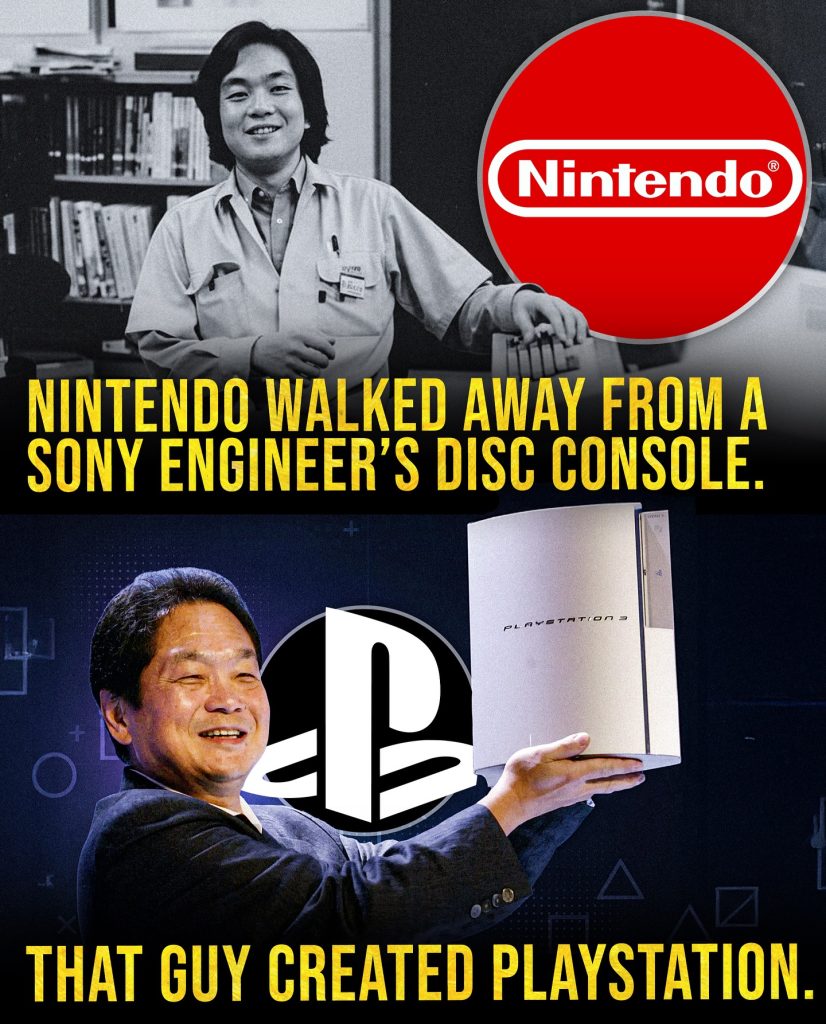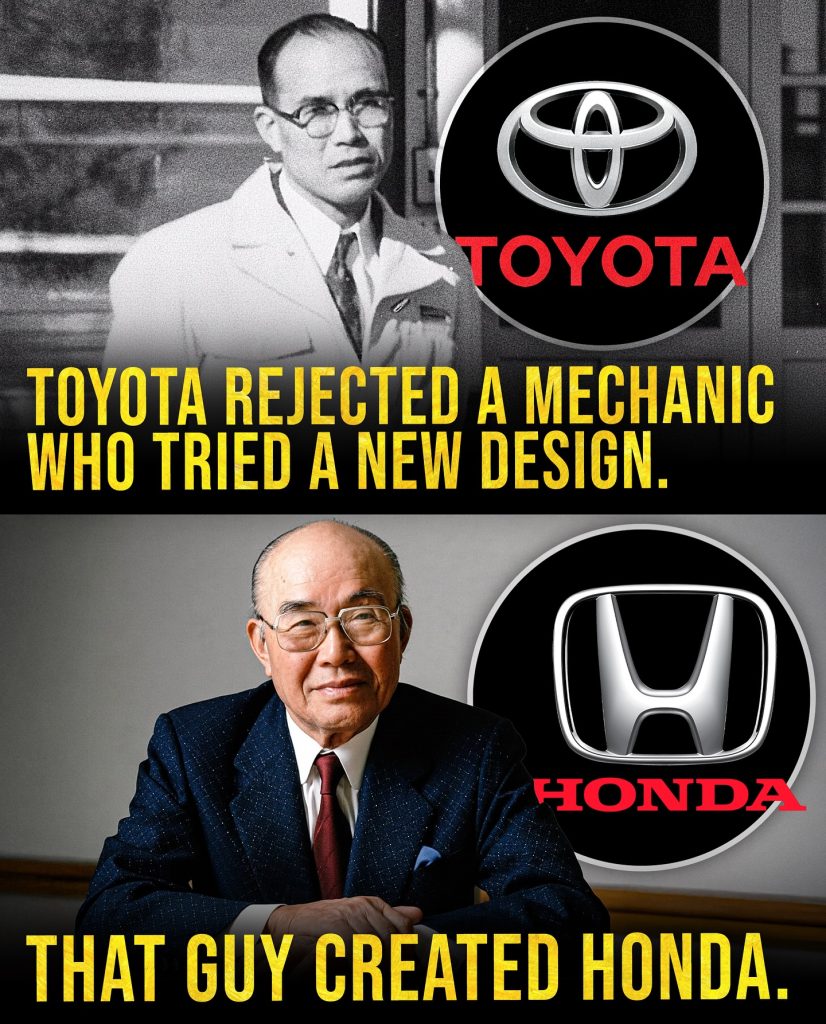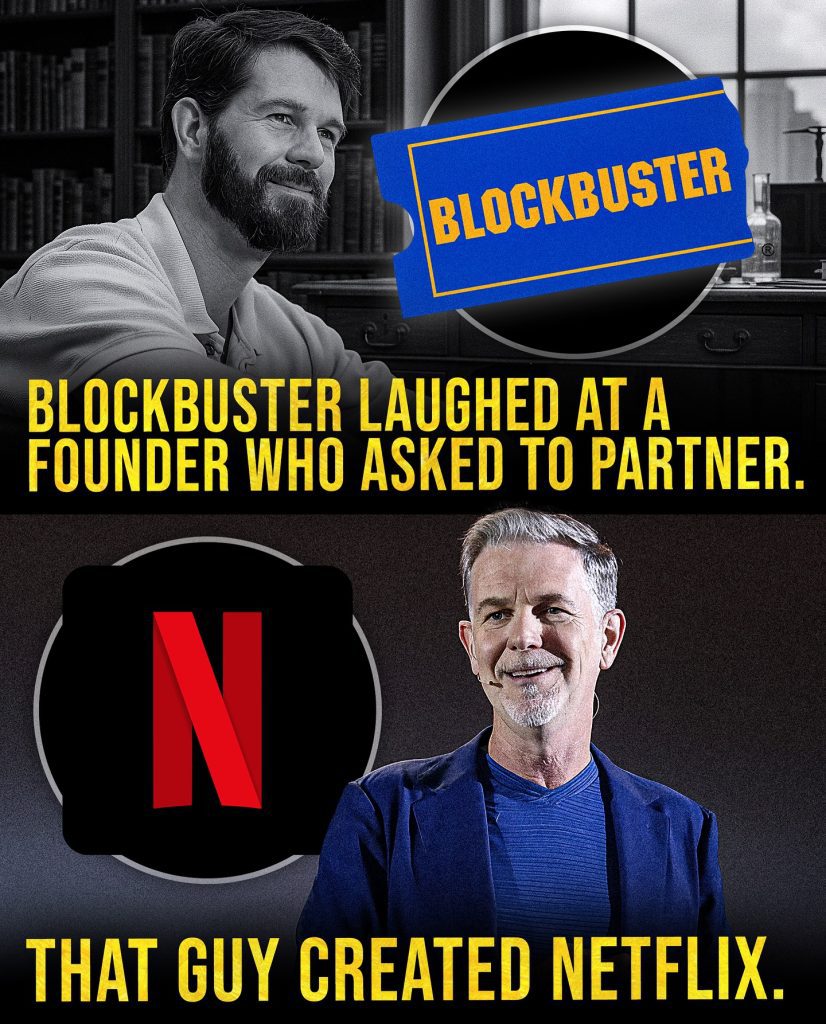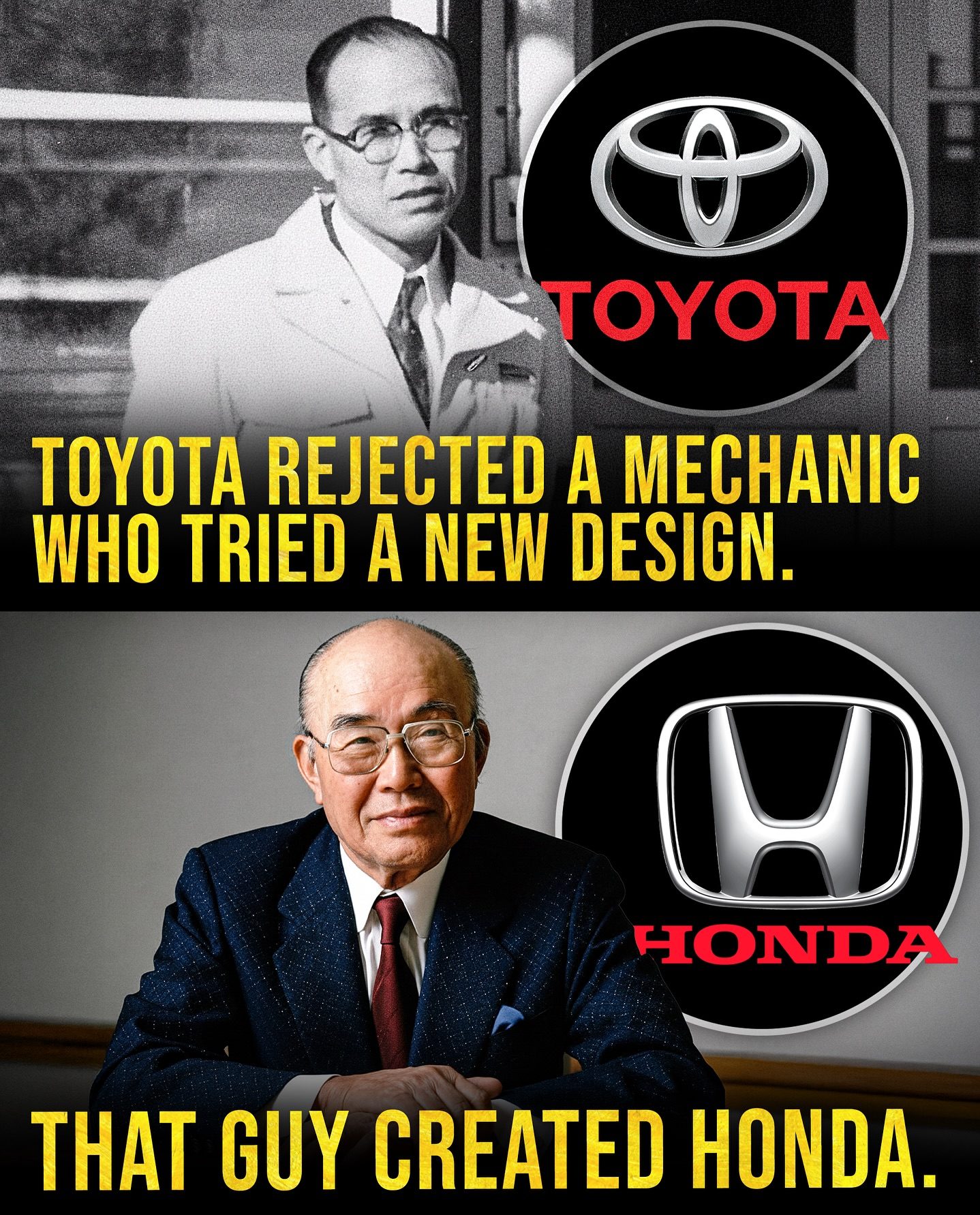From Rejection to Revolution: The True Stories of Visionaries Who Were Told “No” by the Biggest Companies in the World — and Then Changed History
Rejection isn’t the end of the road. For some, it’s the start of a revolution. The stories of Steve Wozniak, Soichiro Honda, Reed Hastings, Ken Kutaragi, and Brian Acton prove one timeless truth — when the world says no, the truly visionary minds say “watch me.”
These aren’t just business stories; they’re human stories — moments when belief outlasted failure, and ideas outshined corporate doubt.
The HP Engineer Who Built Apple

In the mid-1970s, Hewlett-Packard was a tech powerhouse. Their calculators and computers defined precision and innovation. Among their young engineers was a quiet, brilliant tinkerer named Steve Wozniak. He had an idea — a personal computer that ordinary people could use at home.
He pitched it to HP, his employer at the time. But HP didn’t see the point. “Why would anyone want a computer in their home?” they asked. Wozniak’s proposal was turned down — not once, but five times.
Disappointed but not defeated, Wozniak shared his concept with a friend, a hustler named Steve Jobs. Together, they built a prototype in a garage and called it the Apple I. Jobs took the lead in selling it, while Wozniak handled the design magic. What started as a weekend hobby turned into Apple Computers, the company that would later redefine human interaction with technology.
Today, HP still makes laptops. But Apple built an ecosystem that reimagined how we live, work, and connect. From the Apple II to the iPhone, the legacy began with a “no” that became one of history’s biggest “yeses.”
The Mechanic Toyota Rejected — and Honda Was Born

In post-war Japan, a young mechanic named Soichiro Honda had an unshakable curiosity about machines. He had worked for years trying to create better piston rings and engine designs. When he approached Toyota with his ideas, the company wasn’t interested. They dismissed him politely — his designs didn’t fit their current needs.
That rejection might have crushed anyone else. But Honda saw it differently. He founded his own company, Honda Motor Co., starting with small engines for bicycles. People needed affordable mobility in a recovering Japan, and Honda provided it.
Soon, his innovations led to motorcycles, then cars — all marked by precision and efficiency. By the 1970s, Honda was a global name, challenging Toyota itself. Ironically, the mechanic they turned away became one of their fiercest competitors.
Soichiro Honda once said, “Success is 99% failure.” His story proved that sometimes being underestimated is the best motivation in the world.
The Laugh That Created Netflix

In the late 1990s, Blockbuster was king. Every Friday night, families crowded into stores, renting movies on VHS or DVD. Around that time, a small startup founder named Reed Hastings had a new idea: mail-order DVDs with no late fees.
He offered to partner with Blockbuster — for just $50 million. The executives laughed him out of the room. They saw streaming and online rentals as a joke.
Hastings didn’t take it personally. He doubled down on his company, Netflix. What began as a DVD-by-mail service turned into an algorithm-driven streaming giant that transformed entertainment forever.
By the time Blockbuster realized its mistake, it was too late. In 2010, the chain filed for bankruptcy. Netflix was already producing original content and preparing to conquer global streaming.
Today, Netflix is worth over $200 billion, and Hastings’ idea that was once laughed at is now the foundation of modern entertainment.
Nintendo’s Missed Console — The Birth of PlayStation
In the late 1980s, Nintendo dominated gaming. From Super Mario to The Legend of Zelda, they ruled the home console market. To take things further, they collaborated with Sony to create a new gaming system that would use discs instead of cartridges.
A young Sony engineer named Ken Kutaragi was leading the project. He believed in merging music, movies, and games on a single platform. But just before launch, Nintendo abruptly pulled out of the deal — publicly announcing a partnership with another company instead.
Sony was humiliated, and Kutaragi was heartbroken — but he didn’t give up. Instead, he convinced Sony to let him continue developing his vision independently.
That project became the PlayStation.
When it launched in 1994, PlayStation shattered expectations, selling over 100 million units in just a few years. The console changed how people viewed gaming — from a kids’ pastime to a massive entertainment industry.
Meanwhile, Nintendo’s mistake became one of the most famous business blunders ever. Kutaragi went on to become known as “the Father of PlayStation,” and Sony became a gaming empire.
Rejected by Facebook — Then Sold His App for $19 Billion
In 2009, Brian Acton, a software engineer, applied for a job at Facebook. He didn’t get it. Rejected but undeterred, he joined forces with Jan Koum, another ex-Yahoo engineer, to build something simple — a messaging app that respected privacy and worked across devices.
They called it WhatsApp.
Their goal wasn’t fame or fortune; it was connection. Within five years, WhatsApp had hundreds of millions of users worldwide. It grew so fast that Facebook — the very company that once turned Acton away — came knocking.
In 2014, Facebook acquired WhatsApp for $19 billion, one of the largest tech acquisitions in history. Acton became a billionaire overnight — not because he fit into someone else’s company, but because he built his own.
Later, when he left Facebook over disagreements about privacy policies, Acton reminded the world that success isn’t just about money — it’s about values and vision.
The Common Thread — Belief Over Approval
What ties all these stories together isn’t luck or timing — it’s persistence. Each of these visionaries was told their ideas didn’t fit. That their dreams were unrealistic. That their designs were “not what the company needed.”
But they didn’t stop.
Rejection, in their hands, became a tool — not a wall. They saw “no” as fuel for creation. The world that once laughed eventually watched in awe as their ideas reshaped entire industries.
From HP’s missed computer to Nintendo’s abandoned console, from Facebook’s rejection letter to Blockbuster’s boardroom laughter — these stories prove that rejection is never final. Sometimes it’s just the start of something world-changing.
So the next time someone doubts your idea, remember this: every empire started with a door that didn’t open — and a dreamer who decided to build their own.

